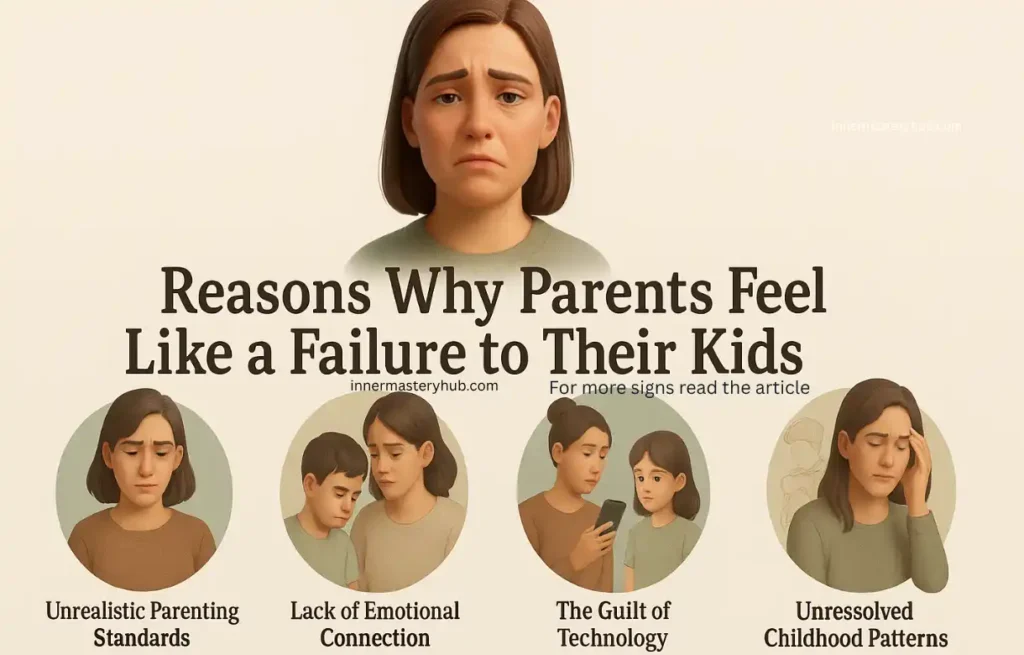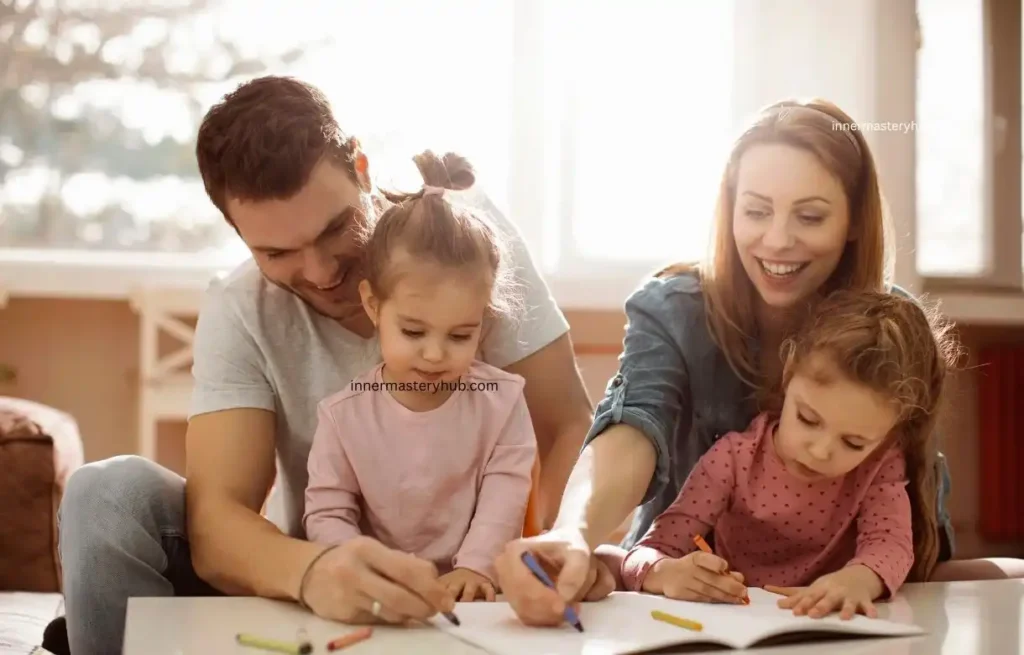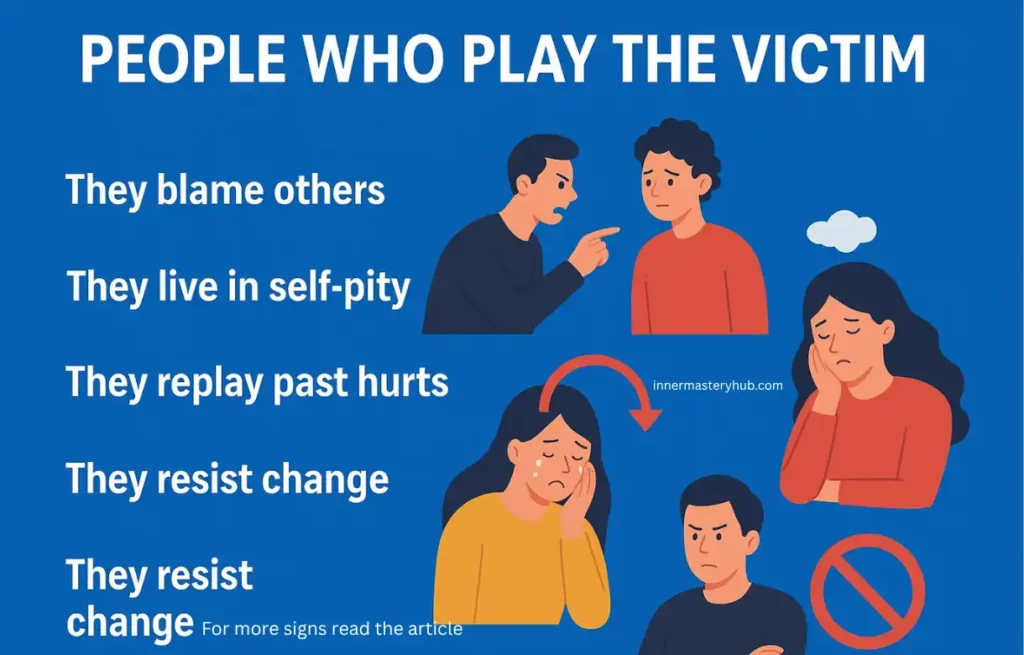11 Reasons For Parents Who Seem To Be a Failure To Their Kids

For parents who seem to be a failure, it’s easy to believe that you’re on the back foot—that you’ve slipped up so many times that your connection with your kids is permanently damaged. You may be saying to yourself, “What kind of parent am I? Why don’t I measure up?” Feeling like you’re failing doesn’t make you a bad parent. It means you’re worried, you care, and you want better. You need to figure out the specific habits you should skip.
Why do you feel that you are failing as a parent?
On social media, you could compare yourself with the radiant pictures of other families. According to a recent study, parents in Sweden who felt worse than others when comparing themselves to others on social networking sites showed higher levels of discomfort and lower parenting self-efficacy.
However, studies reveal that children typically perform better, both academically and emotionally, when parents have greater parental self-efficacy, or the belief that they can help their kids. If you’re criticising yourself, do not worry, there is always room for improvement. Changing your habits can make a significant difference.
Parents seem to be failures not because they truly are, but rather because they are unable to live up to the standards of the modern world on their own. Digital distractions, emotional overload, and constant judgment are all challenges that you are dealing with more than any other generation.
You’re doing something correctly if you care enough to be concerned about failing. Due to this, many parents today feel like failures to their children. These arguments, which are supported by social and psychological issues rather than personal flaws, represent the actual challenges that contemporary parents experience.
1. Unrealistic Parenting Standards
Today’s parents live in a comparative age. Only the most significant elements of family life, perfect dinners, beautiful homes, and happy kids, are shown on social media. Even though these “highlight reels” are often made or filtered, many parents feel as though they are not doing enough when they are constantly exposed to them.
2. Excessive Work-Life Stress
Many parents struggle to find a balance between work and family life due to demanding employment, lengthy workdays, and financial hardship. As a result, guilt kicks in when parents are unable to devote enough time to their kids, leading them to feel as though they are failing when, in fact, they are just overextended.
3. Lack of Emotional Connection
Today’s kids often prefer emotional attention over material possessions. They can sense emotional neglect when parents are preoccupied, which can make them feel as though their needs aren’t being addressed in a fulfilling way.
4. Making Comparisons with “Perfect” Parents
Parents sometimes wonder why they can’t be the same when they see others who appear composed, well-organised, and incredibly patient. Although every family’s circumstances are unique and hidden hardships may be occurring behind closed doors, this comparison trap can lead to constant self-doubt and feelings of failure.
5. Fear of Failing Their Child’s Future
There is a lot of pressure on modern parents to ensure their children’s success, which includes good schools, high grades, extracurricular activities, and emotional health. Even though many aspects are beyond their control, parents often blame themselves when things don’t go as planned, believing they have compromised their child’s potential.
6. Insufficient Support and Community
Families in earlier generations were surrounded by neighbours and relatives who helped to nurture their children. Nowadays, many parents are alone, living far from their extended family, and struggling to make ends meet. Parenting becomes more burdensome without that “community,” which can result in burnout and self-criticism.
7. Children’s Changing Values and Attitudes
Misunderstandings may arise from shifts in generation. Today’s children openly challenge authority since they grow up in a digital, independent environment. Some parents misinterpret their children’s resistance as a sign of disrespect or a lack of discipline, but it’s actually a sign of healthy development and self-expression.
8. Technology’s Guilt
While controlling their children’s digital life, parents battle with their own screen habits. Guilt follows when parents use devices to distract their children. They believe they are “disconnected” or “lazy,” yet occasionally, screens are just coping mechanisms in a world that moves quickly.
9. Unresolved Childhood Patterns
Many parents have emotional wounds from their own early years. They feel as though they have failed to “break the cycle” when they engage in actions they vowed to refrain from, such as yelling, overreacting, impulsive reactions, or withdrawing. Even if recognition is a first step towards improvement, this self-blame can be relatively strong.
10. Misunderstanding What Kids Actually Need
Sometimes parents assume their kids want extra opportunities, exposure, or stuff. But in reality, the majority of children desire acceptance, patience, and presence. Parents feel bad when they can’t fulfil every request, but children are more in need of warmth than perfection.
11. Lack of Positive Feedback
There are rarely obvious indicators of success while parenting. You receive praises at work, but growth is unnoticed at home. Youngsters, particularly teenagers, may not show gratitude. Without acknowledgement, parents might think they’re failing, yet over time, their efforts turn out to be really significant.

11 Habits You Should Skip to Improve Parenting
Below are common parent behaviours that reinforce the “I’m failing” loop. For each, I’ll describe what it looks like, why it hurts, and how you can do something different.
1. Endless apologising for “bad parenting”
Every time your child reacts badly, you may find yourself saying, “I’m sorry I snapped,” or “I’m sorry I didn’t do this.” It’s good to apologise when you genuinely need to. However, if you consistently diminish your authority by apologising, you are telling yourself and your child that you are unworthy. Instead, when you do make a mistake, admit it (“I regretted how I reacted”) and then make a tiny correction. This boosts your child’s self-esteem and displays to them that grown-ups make errors, learn from them, and repair them.
2. Comparing your parenting to idealised digital versions
You may feel inferior when you see other parents sharing pictures of flawless craft afternoons, smooth routines, or uncomplicated discipline. That contrast often increases insecurity. Unfavourable comparisons led to a reduction in parenting self-efficacy, according to the Swedish study.
Instead of evaluating yourself against the highlight reel, concentrate on your daily small victories. “Today, how did I connect with my child, even for five minutes?” This shifts your perspective from perfection to development.
3. Believing your child’s behaviour defines you
“If they misbehave, I’m a failure as a parent,” you may think. According to research, temperament, stress, and the environment all have an impact on children’s behaviour in addition to parental skills. You will feel defeated if you associate your identity with your child’s every response.
Instead, keep your job and the outcomes apart. Admit that your objective is to show up, listen, set boundaries, and help them learn rather than to create perfect behavior.
4. Over-rescuing your child
You might leap in to solve all of your children’s problems, shield them from disappointment, and take on their burdens. Ironically, this makes you feel less confident as a parent and teaches children less resilience, even though it appears to be compassionate.
Research on the “failure mindset” among parents suggests that individuals may exert excessive control over their children’s experiences if they believe that failure indicates they are flawed. Instead, allow your kids to take on suitable challenges, fail occasionally, and realise their own potential. It is your responsibility to help them, not to eliminate all risks.
5. Ignoring your own emotional needs
You don’t take time for yourself because you might feel bad about it. This can eventually wear you out, lower your mood, and impair your ability to connect with your children. According to one meta-analysis, lower sensitivity in parent-child interactions is correlated to increased parenting stress and worse maternal mental health.
Instead, combine little everyday actions of self-care, such as taking a quick stroll, spending five minutes alone, or closing your eyes while sipping tea. Keep in mind that you are a more present parent when you are well-rested.
6. Setting unrealistic standards
Perhaps you want your kids to behave perfectly, or you expect yourself to live up to a standard constantly. You call yourself a failure when you don’t. Children who have poor parental self-efficacy typically have fewer goals and perform less academically. Rather, they have reasonable objectives. For instance, instead of saying, “I’ll be perfect all day,” say, “Today I’ll listen fully for 10 minutes.” Celebrate your half accomplishment.
7. Reacting in shame instead of reflection
You may experience intense sympathy when you “lose it,” thinking, “I can’t believe I yelled,” before withdrawing. Growth is silenced by shame. Instead, engage in thoughtful contemplation. “What triggered me?” ask yourself. What did I require at that precise moment? and then make a plan: “I’ll take a step back to take a deep breath next time.” Shame creates avoidance, whereas reflection creates capability.
8. Holding onto resentment
You may have opinions about how things “should” be, such as how your spouse ought to help you, how your child should behave, or how your life should go easily. You feel like you’ve failed when it doesn’t. Your energy is therefore poisoned by resentment. Instead, confide in someone you can trust. Next, determine what one adjustment I can make immediately. You may take action when you let go of some “shoulds.”
9. Treating your child’s feelings as inconvenient
“They shouldn’t be crying this much. I’ve had enough,” you may say, dismissing your child’s distress. However, you can’t connect with someone when you reject their feelings or your own. Research has shown that increasing children’s self-efficacy is associated with improved outcomes, particularly in relation to emotional support and adolescent well-being.
If your child is upset, pause. Reflect: What are they really feeling? Name it, “You seem frustrated”, and then help them find words or a coping step.
10. Believing your past defines your parenting future
You may assume, “I’ll always be the ‘bad parent’ because I made so many mistakes earlier.” But your present perceptions of your role are more important than your previous ones. For instance, one study discovered that children’s motivation patterns and present involvement were predicted by parental self-efficacy. You can still rework your narrative by declaring, “I’m learning.” Every day presents a fresh chance. You are not required to have a permanent “failure” record, just as your child does not.
11. Isolating yourself when you feel inadequate
Withdrawal may be the result of feeling like a terrible parent. On the other hand, loneliness decreases self-efficacy and increases distress. Unfavourable comparisons and solitude caused greater distress. Make contact. Join a parent organisation, have a conversation with a friend, and express your true emotions rather than your “perfect face.” Making connections serves as a reminder that you are not alone and that other people may both encourage and highlight your strengths.
Daily self-reflection
At the end of each day this week, ask yourself:
- What did I do that day that aligned with the kind of parent I want to be?
- What one moment could I have approached differently?
- What is one small thing I will do differently tomorrow?
Write down your answers. When you do, you turn vague guilt into intentional change. Over time, you’ll notice subtle shifts in your mood, your interactions with your child, and your belief in yourself.
Why skipping these habits matters
You support a narrative that you are failing when you continue these harmful habits, which diminishes your self-efficacy and increases stress. As stress increases, you become less emotionally available to your kids, less capable of calmly guiding them, and more prone to react rather than respond. On the other hand, progressively breaking these patterns improves your feeling of control, emotional openness, and a sincere bond with your kids. That improves the results for both you and your kids.
Final thoughts
Read this as a message of hope if you are a parent who feels like a failure to your children: you are not a failure. It indicates that you are conscious, and the first step to change is awareness. Accept the chaotic, flawed, and very human nature of parenting. Ignore the behaviors above, choose the better options, and keep in mind that minor adjustments can yield greater value than significant changes. Being perfect is not necessary for your youngster. They require your presence, compassion, and understanding.
FAQs about “parents who seem to be a failure to their kids”
Why do parents who seem to be failing their kids feel this way?
Parents who seem to be failing their kids often feel this because they set unrealistic standards. They believe they must be perfect. Daily challenges, stress, and comparison make them doubt their abilities, even though love, effort, and presence matter more than perfection.
Does my child’s bad behaviour mean I’m one of the parents who seem to be failing their kids?
No, your child’s bad behaviour doesn’t make you one of the parents who seem to be a failure to their kids. Children act out for many reasons—developmental, emotional, or boundary-related. What matters is your patience and consistency, not temporary mistakes or outbursts.
How much does social media affect parents who seem to be failing their kids?
Social media heavily affects parents who seem to be failing their kids. Constant exposure to “perfect families” makes them feel inadequate. Comparing your real life to others’ highlight reels can lower your confidence and increase guilt. Limiting social media helps you see your true worth.
Is it normal for parents who seem to be failures to their kids to feel inadequate sometimes?
Yes, it’s completely normal for parents who seem to be a failure to their kids to feel inadequate. Every parent questions themselves. These feelings show you care. Accepting that parenting is imperfect helps you grow and stay emotionally connected, rather than feeling defeated.
What can trigger intense feelings in parents who seem to be failing their kids?
Triggers for parents who seem to be a failure to their kids include burnout, lack of sleep, work stress, or unresolved childhood issues. When expectations don’t match reality, guilt appears. Recognizing these triggers helps you manage emotions and respond with kindness to yourself.
How can parents who seem to be failing their kids stop comparing themselves to others?
Parents who seem to be a failure to their kids can stop comparing by focusing on their own family’s needs. Celebrate small wins daily, remind yourself that every home is different, and unfollow accounts that cause self-doubt. Progress, not perfection, is what truly counts.
What steps help parents who seem to be failing their kids reconnect with their child?
Parents who seem to be a failure to their kids can reconnect by spending quality time together—listening, talking, or playing. Focus on moments of attention rather than grand gestures. Apologize when needed, stay present, and show love through consistency and empathy every day.
When should parents who feel like a failure to their kids seek counselling?
Parents who seem to be failing their kids should seek counselling when feelings of guilt, sadness, or anxiety become constant. If self-blame significantly impacts daily life or relationships, professional help can help restore balance, rebuild confidence, and teach healthier coping skills.
How can parents who seem to be a failure to their kids talk about mistakes with their child?
Parents who seem to be failing their kids should talk about mistakes honestly. Use calm words, admit errors, and show how to make things right. This teaches children the importance of forgiveness, emotional safety, and trust. It turns failure into a lesson about growth and love.
What routines help parents who seem to be a failure to their kids rebuild confidence?
Parents who seem to be a failure for their kids can rebuild confidence by establishing simple routines, such as daily check-ins, gratitude journaling, and family time. Reflect on what went well each day. These small acts remind you that consistency and care matter more than perfection.






